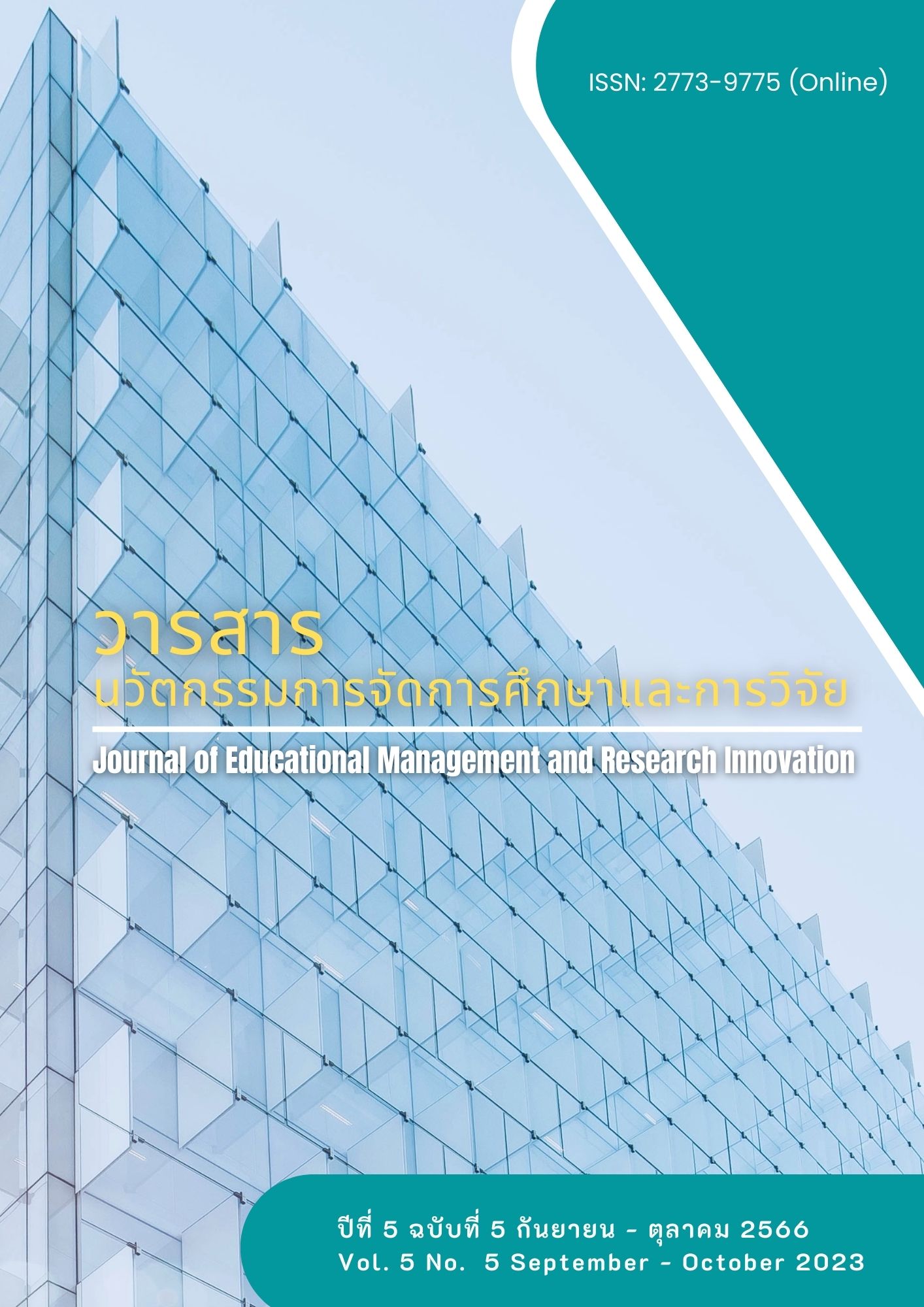Promotion Strategy PF PE Training Service in Guangzhou-Taking the Consumption Behavior and Utilization Rate of Large Public Stadiums as an Example
Main Article Content
บทคัดย่อ
The aims of this research were to 1. analyze the driving factors and mechanism of urban residents’ sports venue consumption behavior. 2. analyze the main game relationship between the government, stadiums, and urban residents 3. Analyze the impact of the size on the evolution path of the system and the impact of the size of the government’s negligence loss on the evolution path of the system influence the behavior evolution path of three important adjustment parameters. Qualitative Research: The sample selection of interviewees was 30 respondents from Beijing, Shanghai, and Guangzhou. Quantitative Research was used by China's professionals by stratified random sampling of the field survey of 1,274 questionnaires. The findings: 1. the analyzed driving factor and mechanism of urban residents’ sports venue consumption behavior indicated the residents adopt two behavioral strategies: "exercise in the stadium" and "exercise in the gymnasium". 2. the analysis of the main game relationship between the government, stadiums, and urban residents indicated (1) the behavior of stadiums and gymnasiums and (2) the behavior in sports venues above that subjective. (3) the analysis of the predictive effect of psychological factors on the overall interpersonal consumption behavior in stadiums and gymnasiums at the statistically significant level of .01. And 3. the analysis of impact of the size on the evolution path of the system and the impact of the size of the government’s negligence loss on the evolution path of the system influence the behavior evolution path of three important adjustment parameters indicated a theoretical model of the impact mechanism of the consumption behavior of urban residents' stadiums and gymnasiums.
Article Details

อนุญาตภายใต้เงื่อนไข Creative Commons Attribution-NonCommercial-NoDerivatives 4.0 International License.
เอกสารอ้างอิง
Bai, Y., Liu, Y. (2013). An Exploration of Residents’ Low-Carbon Awareness and Behavior in Tianjin, China. Energy Policy, 61, 1261-1270.
Chao, L. (2015). Research on the Entrusted Operation and Management Mode of Large Public Sports Venues -- Taking Hebei Province as An Example. Journal of Guangzhou Institute of Physical Education, 35(3), 55-58.
Hoelzl, E., Pollai, M., & Kamleitner, B. (2009). Experience, Prediction and Recollection of Loan Burden. Journal of Economic Psychology, 30, 446-454.
Hossain M. (2018). How Cognitive Style Influences the Mental Accounting System: Role of Analytic Versus Holistic Thinking. Journal of Consumer Research, 23(4), 134-142.
Kai, C., Huajing, L., & Fen, G. (2014). Analysis of Psychological Factors of Consumers' Green Travel. East China Economic Management, 28(6), 129-134.
Ke, W., & Yu, S.-C. (2023). Abusive Supervision and Employee Creativity: The Mediating Effect of Role Identification and Organizational Support. International Journal of Multidisciplinary in Management and Tourism, 7(1), 39–52.
Lifang, C. (2017). Problems and Countermeasures of Human Resources Incentive in Large Stadiums and Gymnasiums. Fortune Today, 15, 102-102.
Lingyun, M. (2011). Research on Low-Carbon Energy Consumption Behavior and Policy Guidance of Urban Residents. Xuzhou: China University of Mining and Technology.
Sun, C., Nan, L., & Ouyang, X. (2014). Chinese Public Willingness to Pay to Avoid Having Nuclear Power Plants in The Neighborhood. Sustainability, 6(10), 7197-7223.
Vermeir, I., Verbeke, W. (2008). Sustainable Food Consumption Among Young Adults in Belgium: Theory of Planned Behavior and the Role of Confidence and Values. Ecological Economics, 64(3), 542-553.
Wenlong, W. (2015). Research on Accessibility of Urban Public Sports Facilities Based on GIS. Nanjing: Nanjing Forestry University.
Yunlong, T., & Xubin, Z. (2016). Coordinated Development of Urban Comprehensive Sports Center Construction and Surrounding Transportation Planning. Comprehensive Transportation, 8, 39-42
Zhang, W., Hengbo, L., & Han, L. (2018). Research on Human Resource Management and Optimization of Large Stadiums and Gymnasiums -- Based on Case Analysis of Jinan Olympic Sports Center. Zhejiang Sports Science, 40 (3), 33-37.
Zhao, A., & Phakdeephirot, N. (2023). Research on Influencing Factors of Employee Safety Behavior - Data from Construction Enterprises in Hebei Province, China. International Journal of Multidisciplinary in Management and Tourism, 7(1), 79–104.
Zhiwen, W. (2019). Analysis and Improvement of China's Stadium Policy. Beijing: Capital Institute of Physical Education.


